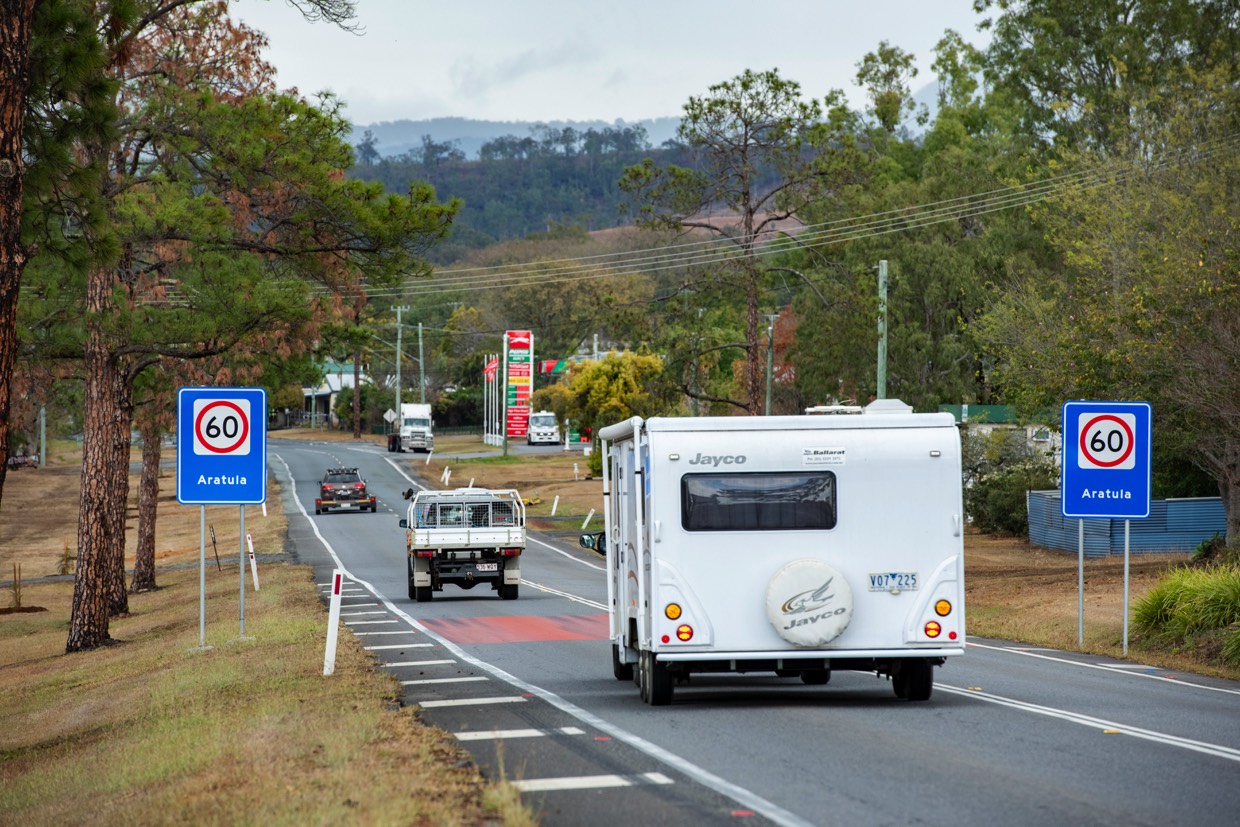
Get the facts
On average, 14 lives are lost and 243 are hospitalised each year from road crashes involving a light passenger vehicle towing a trailer. Towing a caravan, camper trailer, boat trailer or horse float, requires additional driving skills, concentration, and safety precautions.
Safe towing checklist
Ensuring your load is secured properly and doesn’t exceed your towing capacity makes the road safer for everyone. Check out our towing checklist before you hit the road for a safer getaway.
While driving
When towing a trailer (including caravans), remember to:
- allow for the extra length and width of the trailer when entering traffic
- allow for its tendency to ‘cut in’ on corners and curves
- accelerate, brake and steer smoothly and gently to avoid swaying
- allow for the effects of cross-winds, passing traffic and uneven road surfaces
- leave a longer stopping distance between you and the vehicle ahead; increase the gap for longer, heavier trailers and allow even more distance in poor driving conditions
- use a lower gear in both manual and automatic vehicles when travelling downhill to make your car easier to control and reduce the strain on your brakes
- allow more time and distance to overtake and avoid ‘cutting off’ the vehicle you are overtaking when returning to the left lane
- fit a reversing camera or get someone to watch the rear of the trailer when you reverse—reversing is difficult and takes practice
- not hold up traffic—pull off the road where it is safe to do so, and where it won’t create a build-up of traffic unable to overtake
- be aware that your vehicle and trailer will have a tendency to sway when a heavy vehicle overtakes you (gently slow down when heavy vehicles pass you to help avoid caravan sway)
Visit the Transport and Main Roads site for further detail on equipment, loading, maintenance and insurance.
Caravan tips
Weight distribution to avoid crashes
Crashes involving caravans are often caused by either the towing vehicle or the caravan itself being too heavy, or weight not being distributed evenly.
This can include not putting heavy items up high in the caravan – keeping them down low, over the axles preferably to avoid heavy weight behind the axles or too far forward of the axles.
If you do start to experience caravan sway, avoid using the towing vehicle’s brakes, except as an absolute last resort. If the trailer’s brakes can be operated by themselves they should be applied gently. Otherwise a steady speed or slight acceleration should be held if possible until the sway stops.
Safe following distances when towing a caravan
Allow for much longer following distances of at least 5 seconds when you are towing a caravan. View the short video for more detail.
Additional information

Tips for buying a safe caravan
Visit the Transport and Main Roads site for practical advice to buy a safe caravan.

10 things you shouldn’t do with your new caravan
The RACQ has compiled a practical quick list of things to avoid when caravanning.

Inspections and education
Caravanning Queensland is the state’s peak caravanning industry body, with a membership base spanning from the Gold Coast to Cairns. The free program is designed for owners of caravans, motorhomes, and other recreational vehicles to understand the challenges they may face on the road and to ensure they are better equipped to travel confidently, safely and compliantly.

Caravan Towing Fact Sheet
Check out our caravan towing fact sheet to make sure you are at a safe weight before you hit the road!
Source: 2023-24 Road Crash Report, Department of Transport and Main Roads Queensland. Five-year average of lives lost and hospitalised casualties 2019-2023.
